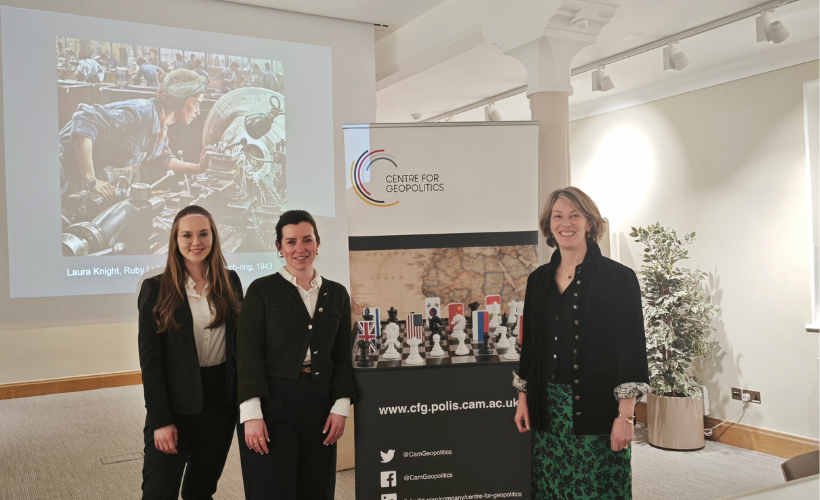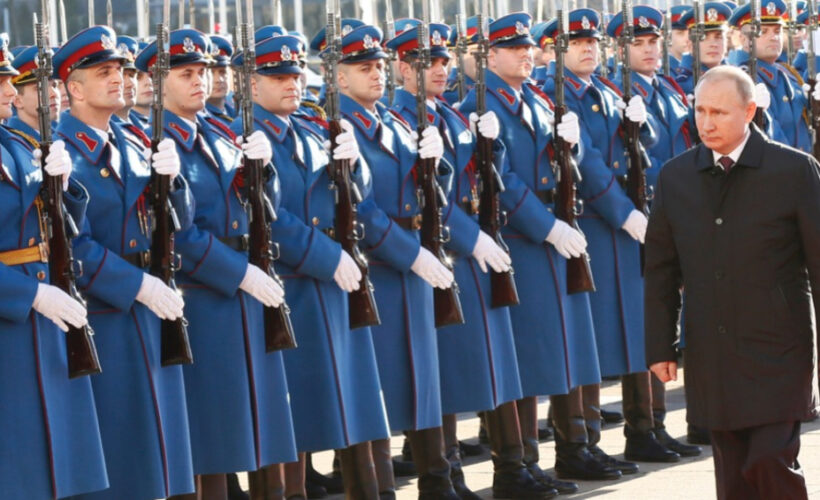Summary by Philipp Hirsch, former Ax:son Johnson Research Assistant in Applied History
Event title – ‘Strategy – The Pursuit of Freedom of Action’ by Dr Nadia Schadlow
“The essence of strategy is the struggle for freedom of action.” This quote by French general and military thinker André Beaufre was at the heart of Dr. Nadia Schadlow’s talk on the occasion of this year’s Engelsberg Annual Lecture on International Order, organized by the Centre for Grand Strategy at Kings College, London and the Centre for Geopolitics, University of Cambridge. In 2018, Dr. Schadlow had been Deputy National Security Advisor for Strategy in the US government. For the Trump administration, she was also the lead author of the 2017 National Security Strategy (NSS). Amongst others, she currently is a Senior Fellow at the Hudson Institute. Her talk focused on the nature of strategy and its formulation, continuously drawing her general remarks to current cases of policy making in particular in regard to US policy towards China and Russia.
Dr. Schadlow broke down Beaufre’s central tenet into three main points. Firstly, strategy is characterized by competition. Actors are seeking to formulate their interests and options not in isolation, but dynamically in response to the actions and intentions of their adversaries, allies or neutrals. The 2017 NSS was formulated in response to what the Trump administration perceived to be an increased challenge by China and Russia. Secondly, strategy has no end-state. There might be goals, which can be met. But the need to strategise never ends, just as much as politics has no end point. In our democratic systems, it is as tempting as it is illusory for politicians to seek “missions accomplished” and “jobs well done”. She pointed to the 1990s, when after the end of the Cold War the US hoped for an end of history through a global convergence towards liberal democracy. But this global democratization did not take place. Just as much as history, strategy and the need for it had not ended. Thirdly, Dr Schadlow underscored the comprehensive nature of strategy; it goes across various areas such as the economy, public opinion, the military or technology. All these areas are of equal importance, making it necessary to strive for freedom of action in all of them.
Following her remarks, Prof Brendan Simms, Director of the Centre for Geopolitics (Cambridge), gave a short response. He drew attention to the historic setting of Beaufre’s theory, written shortly after the end of World War II. Beaufre’s focus on freedom for action most likely referred to the perceived challenges of French foreign policy during this period, which was grappling with the shock of military collapse in 1940 and the struggle to find a place in the Western alliance and NATO in the early years of the Cold War. He also pointed to the return of great power politics to American strategy-making through the 2017 NSS, whose significance Prof Simms compared to historic documents such as the NSC-68 memorandum at the outset of the Cold War.
The final element of the event was a Q&A session, which circled around the role of international institutions, the process of strategy-making as well as the capability of democracies to pursue Grand Strategy.







